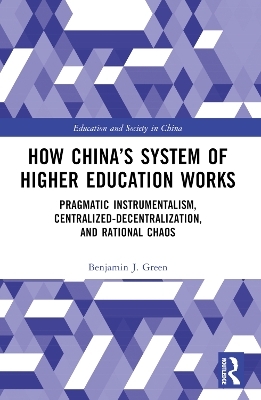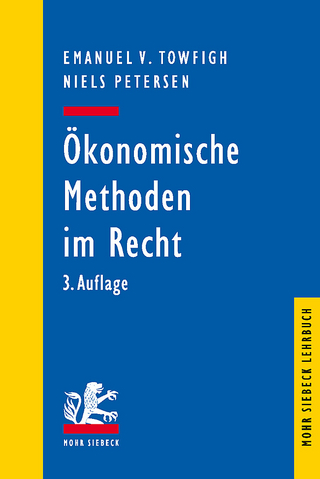
How China’s System of Higher Education Works
Routledge (Verlag)
978-1-032-25264-3 (ISBN)
Green sheds light onto the mercurial and ill-defined boundaries of institutional governance within China’s unique system of higher education, a national system that remains misunderstood by scholars who continue to position it as little more than a research arm of the party/state.
Through a synthesis of systems theory, complexity theory, and institutional logics, Green provides a relational accounting of "Higher Education with Chinese Characteristics" – a complex, adaptive social system whose paradoxical modernization ideology of pragmatic instrumentalism, in conjunction with a centralized-decentralized governance model, foments rational chaos at the institutional level. Specifically, his book highlights the concept of rational chaos – an observable phenomenon of evolutionary emergence experienced by subaltern actors engaged with the confusing and often paradoxical institutional logics of meso/micro-level governance. Moreover, developed through in-depth narrative interviews, Green’s conceptualization of collective-individualism provides a glimpse into the diverse patterns of identity that have developed within a single institutional governance context. These discrete identity formations, patterned through varying understandings of individual self-determinism, collective role fulfillment, norms and structures of governance, and subsequent changemaking efforts, call into question culturally deterministic research surrounding self-mastery, institutional autonomy, and academic freedom within the Chinese higher education context.
His book highlights a subaltern institutional lifeworld accounting of higher education governance that will speak to anyone grappling with neoliberal commodification, managerialism, academic nationalism and the increasing onset of transnational academic (im)mobility. It is ideal for students and scholars of international comparative education, higher education governance, and Chinese studies.
Benjamin J. Green is Assistant Professor in the College of Teacher Education at Beijing Language and Culture University. He received his Ph.D. in Comparative Education from the Faculty of Education at Beijing Normal University. His recent works have focused on China's higher education internationalization, US-China relations, digital nationalism, critical cosmopolitanism, collective intelligence, and Chinese internationalism as a contested project of alternative modernity.
Acknowledgments Preface 1. Higher Education with Chinese Characteristics: HEWCC 2. Pragmatic Instrumentalism: A Faulty Modernization Ideology 3. China’s Centralized-Decentralized Higher Education Governance Model 4. Vacillation on Institutional Autonomy and Academic Freedom: A Discourse of Uncertainty 5. Self-Mastery: A Misrepresented Concept within China Higher Education 6. In Pursuit of Rational Chaos: A Dynamic of Evolutionary Emergence within China’s Complex System of Higher Education 7. Rational Chaos and Collective-Individualism: Diverse Patterns of Identity and Institutional Change 8. Towards a Praxis of Collective Individualism: No Longer ‘Dancing in the Chains’ of Self-Mastery 9. Conclusion: A Call for Increased Understanding and Engagement with HEWCC 11. Appendix: Eight Interviews Coded through the RCM for Identity and Institutional Change
| Erscheinungsdatum | 10.07.2023 |
|---|---|
| Reihe/Serie | Education and Society in China |
| Verlagsort | London |
| Sprache | englisch |
| Maße | 156 x 234 mm |
| Gewicht | 426 g |
| Themenwelt | Sozialwissenschaften ► Ethnologie |
| Sozialwissenschaften ► Pädagogik ► Erwachsenenbildung | |
| Sozialwissenschaften ► Soziologie ► Spezielle Soziologien | |
| ISBN-10 | 1-032-25264-2 / 1032252642 |
| ISBN-13 | 978-1-032-25264-3 / 9781032252643 |
| Zustand | Neuware |
| Informationen gemäß Produktsicherheitsverordnung (GPSR) | |
| Haben Sie eine Frage zum Produkt? |
aus dem Bereich


